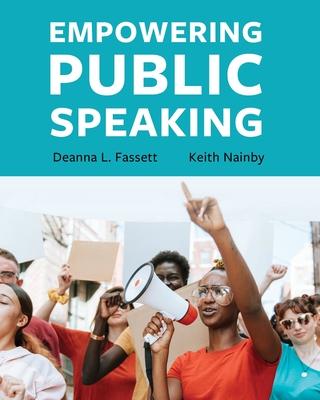With emphasis on public speaking as a means for social justice, Empowering Public Speaking helps students develop the communication skills necessary to successfully effect change. Readers learn about public speaking as a means of personal, social, economic, and cultural power, and how communication shapes social relations, identity development, and public awareness. Through examples and discussions, the book demonstrates how public speaking is a significant act that inspires social transformation.
Over the course of 12 chapters, students learn how communication creates our social reality and shapes interpersonal relationships. They discover the importance of critical, compassionate listening, careful attention to power, and adapting speeches to a specific time, place, and purpose. Dedicated chapters address the craft required for effective public speaking, the responsibility of finding and sharing reputable sources of information, and strategies for delivering an impassioned address. The closing chapters discuss speaker accountability, the constant evolution of public speaking, and its ability to empower.
Dr. Deanna L. Fassett is Director of the Center for Faculty Development at San Jos State University. She is the author of Critical Communication Pedagogy and Coordinating the Communication Course: A Guidebook (both with John T. Warren). Her published research has appeared in an array of communication studies journals, including Basic Communication Course Annual, Communication and Critical/Cultural Studies, Communication Education, Liminalities: A Journal of Performance Studies, and Text and Performance Quarterly.
Dr. Keith Nainby is a professor of communication within the Department of Communication Studies at California State University, Stanislaus. His publications include chapters in The SAGE Handbook of Communication and Instruction and The Invisibility Factor: Administrators and Faculty Reach Out to First-Generation College Students, as well as journal articles in Liminalities: A Journal of Performance Studies, Language and Intercultural Communication, and Educational Foundations.
